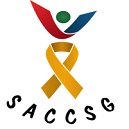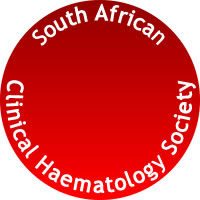Original Research
Succinate dehydrogenase-deficient renal cell carcinoma: A retrospective study, 1999–2018
Submitted: 17 October 2022 | Published: 08 June 2023
About the author(s)
Ella Morrison, Department of Anatomical Pathology, School of Pathology, Faculty of Health Sciences, University of the Free State, Bloemfontein, South Africa; and, Department of Anatomical Pathology, National Health Laboratory Service, Bloemfontein, South AfricaJacqueline Goedhals, Department of Anatomical Pathology, School of Pathology, Faculty of Health Sciences, University of the Free State, Bloemfontein, South Africa; and, Department of Anatomical Pathology, National Health Laboratory Service, Bloemfontein, South Africa; and, PathCare Laboratories (Dietrich, Voigt, Mia and Partners), Bloemfontein, South Africa
Shireen Pretorius, Department of Anatomical Pathology, School of Pathology, Faculty of Health Sciences, University of the Free State, Bloemfontein, South Africa; and, Department of Anatomical Pathology, National Health Laboratory Service, Bloemfontein, South Africa
Gina Joubert, Department of Biostatistics, School of Biomedical Sciences, Faculty of Health Sciences, University of the Free State, Bloemfontein, South Africa
Anthony J. Gill, Department of Anatomical Pathology, Faculty of Medicine and Health, Sydney Medical School, The University of Sydney, Sydney, Australia; and, Department of Anatomical Pathology, Cancer Diagnosis and Pathology Group, Kolling Institute of Medical Research, St. Leonards, Sydney, Australia; and, Department of Anatomical Pathology, Royal North Shore Hospital, NSW Health Pathology, St. Leonards, Sydney, Australia
Gerhard van der Westhuizen, PathCare Laboratories (Dietrich, Voigt, Mia and Partners), Bloemfontein, South Africa
Abstract
Background: Succinate dehydrogenase-deficient (SDH-deficient) renal cell carcinoma (RCC) is a rare subtype of RCC. Approximately 0.05% – 0.2% of RCCs are SDH-deficient. It is usually associated with a pathogenic germline variant of the enzyme. Although the tumour is often indolent, it has a strong association with hereditary disease, most commonly paraganglioma and/or pheochromocytoma, and genetic testing is advised. Succinate dehydrogenase-deficient RCC is diagnosed by immunohistochemical (IHC) staining for SDH subunit B (SDHB), with loss of staining confirming SDHB deficiency. The incidence of SDH-deficient RCC in South Africa is unknown.
Aim: To determine the incidence of SDH-deficient RCC in the Free State Province and its correlation with the worldwide incidence of 0.05% – 0.2%.
Setting: Department of Anatomical Pathology, Universitas Academic Hospital and National Health Laboratory Service (NHLS) in Bloemfontein, South Africa.
Methods: A retrospective descriptive study was performed. All primary RCCs diagnosed over a 20-year period (1999–2018) were included. An SDHB IHC stain was performed on all cases. A diagnosis of SDH-deficient RCC required loss of staining in all tumour cells in the presence of internal positive controls.
Results: The study included 187 RCC cases. Two cases of SDH-deficient RCC were identified, representing an incidence of 1.1%. Both patients were male and were 22 and 44 years of age, respectively.
Conclusion: The incidence of SDH-deficient RCC in central South Africa is slightly higher than global findings.
Contribution: This study provides new data on SDH-deficient RCC in the South African context.
Keywords
Metrics
Total abstract views: 1112Total article views: 980



